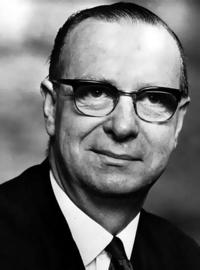Related Research Articles

James Craig, 1st Viscount CraigavonPC PC (NI) DL, was a prominent Irish unionist politician, leader of the Ulster Unionist Party and the first Prime Minister of Northern Ireland. He was created a baronet in 1918 and raised to the Peerage in 1927.

The Parliament of Northern Ireland was the home rule legislature of Northern Ireland, created under the Government of Ireland Act 1920, which sat from 7 June 1921 to 30 March 1972, when it was suspended because of its inability to restore order during The Troubles, resulting in the introduction of Direct Rule. It was abolished under the Northern Ireland Constitution Act 1973.

The Democratic Unionist Party (DUP) is a unionist political party in Northern Ireland favouring British identity. It was founded in 1971 during the Troubles by Ian Paisley, who led the party for the next 37 years. Now led by Edwin Poots, it has, by a margin of one, the most seats in the Northern Ireland Assembly, and it is the fifth-largest party in the House of Commons of the United Kingdom.
Terence Marne O'Neill, Baron O'Neill of the Maine, PC (NI), was the fourth Prime Minister of Northern Ireland and leader (1963–1969) of the Ulster Unionist Party (UUP). A moderate unionist, who sought to reconcile the sectarian divisions in Northern Ireland society, he was Member of the Parliament of Northern Ireland for the Bannside constituency from 1946 until his resignation in January 1970; his successor in the House of Commons of Northern Ireland was Ian Paisley, while control of the UUP also passed to more hard-line elements.

Gerard Fitt, Baron Fitt was a politician in Northern Ireland. He was a founder and the first leader of the Social Democratic and Labour Party (SDLP), a social democratic and Irish nationalist party.

The UK Unionist Party (UKUP) was a small unionist political party in Northern Ireland from 1995 to 2008 that opposed the Good Friday Agreement. It was nominally formed by Robert McCartney, formerly of the Ulster Unionist Party, to contest the 1995 North Down by-election and then further constituted to contest the 1996 elections for the Northern Ireland Forum. McCartney had previously contested the 1987 general election as an independent using the label Real Unionist.
Robert Law McCartney, QC is a barrister and a former Unionist politician in Northern Ireland, who was the founder and leader of the UK Unionist Party (UKUP) from 1995 to 2008.

James Dawson Chichester-Clark, Baron Moyola, PC, DL was the penultimate Prime Minister of Northern Ireland and eighth leader of the Ulster Unionist Party between 1969 and March 1971. He was Member of the Northern Ireland Parliament for South Londonderry for 12 years, beginning at the by-election to replace his grandmother Dehra Parker in 1960. He stopped being an MP when the Stormont Parliament was suspended and subsequently abolished with the introduction of Direct Rule by the British Government.

Basil Stanlake Brooke, 1st Viscount Brookeborough,, styled Sir Basil Brooke, 5th Baronet between 1907 and 1952, was an Ulster Unionist Party (UUP) politician who became the third Prime Minister of Northern Ireland in May 1943, holding office until March 1963.

The House of Commons of Northern Ireland was the lower house of the Parliament of Northern Ireland created under the Government of Ireland Act 1920. The upper house in the bicameral parliament was called the Senate. It was abolished with the passing of the Northern Ireland Constitution Act 1973.

East Antrim is a parliamentary constituency in the United Kingdom House of Commons. The current MP is Sammy Wilson of the DUP.
Independent Unionist has been a label sometimes used by candidates in elections in the United Kingdom, indicating a support for British unionism.

Belfast Windsor was a constituency of the Parliament of Northern Ireland.
Iveagh was a constituency of the Parliament of Northern Ireland.

The Irish Home Rule movement was a movement that campaigned for self-government for Ireland within the United Kingdom of Great Britain and Ireland. It was the dominant political movement of Irish nationalism from 1870 to the end of World War I.
References
| Parliament of Northern Ireland | ||
|---|---|---|
| Preceded by John Patrick | Member of Parliament for Mid Antrim 1945–1953 | Succeeded by Robert Simpson |
| Preceded by Thomas Bailie | Chairman of Ways and Means and Deputy Speaker of the Northern Ireland House of Commons 1969–1972 | Succeeded by Samuel Hall-Thompson |